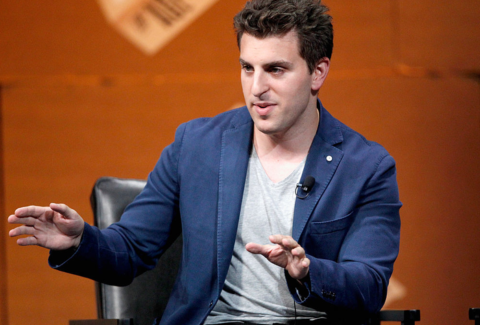Sentences are supposed to be short. Matt Levine broke that rule, and how.
How long should a sentence be? Is there a rule? And can you break that rule? Matt Levine can. And gloriously does.
As per some studies, the average sentence length varies from 10-20 words depending on the genre (source link in the first comment).
The UK Government recommends that we limit sentences to max 25 words to keep our content readable.
At the University of Texas at Austin, a legal writing expert (a lawyer for God’s sake!) cites several experts and recommends a limit of… 20-25 words. (I wish legal documents actually followed that).
With lowering attention spans, popular writing advice might ask you to reduce the length even further.
One lovely piece of advice is from author and writing instructor Gary Provost – where he evocatively asks us to vary our sentence length. (see the first image)
Gary’s point is simple: Instead of writing with the dull monotony of a fixed sentence length like a ChatGPT prompt, if we can keep mixing things up, if we can alternate between sentences of short, medium, and long length, if we can keep in mind the rhythm, the meter, the sound of the words in the reader’s mind… if we can write music, then we can break the arbitrary rules of sentence length.
That last sentence was 73 words long, but I’m hoping you didn’t find it boring or tough to read.
Matt Levine – the maverick genius who writes the world’s best daily finance newsletter – decided to stretch the limits of the sentence-length rule.
In today’s edition of Money Stuff, he writes about Elon Musk’s desire to move Tesla’s incorporation from the US state of Delaware to Texas – hoping for a more business-friendly judicial regime.
(Context: A Tesla shareholder successfully sued the company in Delaware court, saying that the stock compensation paid by the company to the CEO Elon Musk was too high. Musk believes that the Delaware judge was too harsh on him and the company in giving that judgement).
Matt Levine makes a different point – even if Tesla moves its incorporation to Texas, it may not be able to escape the long arm of Delaware law, because of something known as case-precedence.
More than 300 companies from the S&P 500 Index are incorporated in Delaware, with only 4 in Texas. And so if someone decides to sue Tesla again for CEO pay in Texas, the chances are that a Texas judge looking for case- precedence… will look at Delaware judgements!
Anyway, the point of my post is to highlight one sentence from Matt’s piece.
In the final para of his write-up, Matt concludes with a monstrous, pulsating, T-Rex-sized sentence (a question actually) that totals up to: one-hundred and sixty-three words.
What 20-25 word limit? Let me go 8X on that, says Matt.
Rules are for amateurs. But to break them, you must deeply know them.









